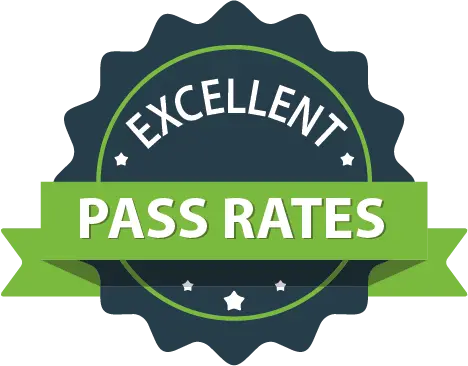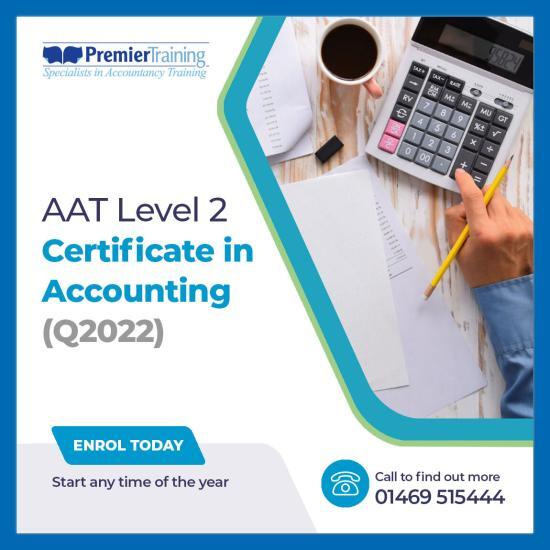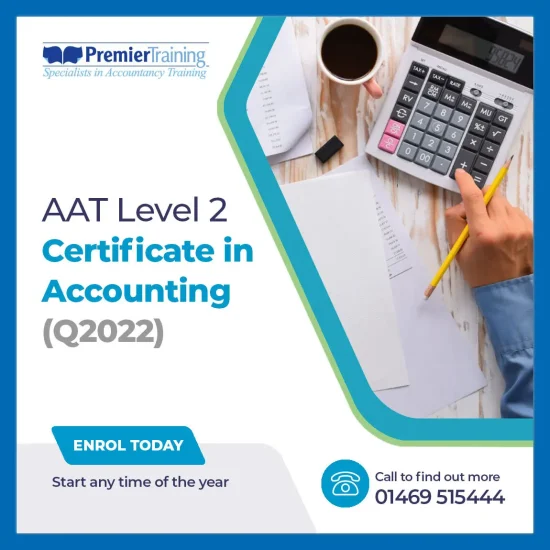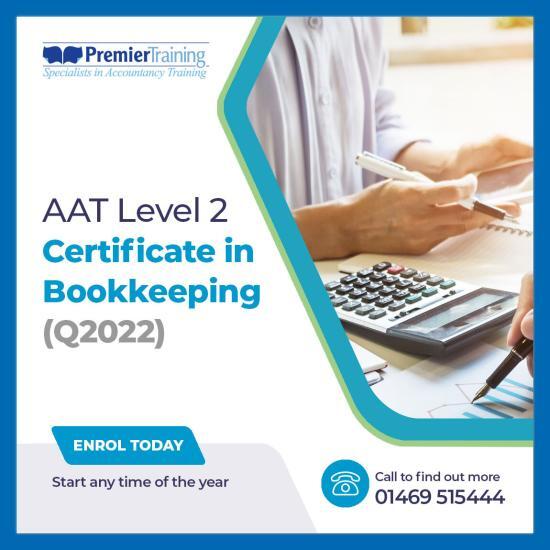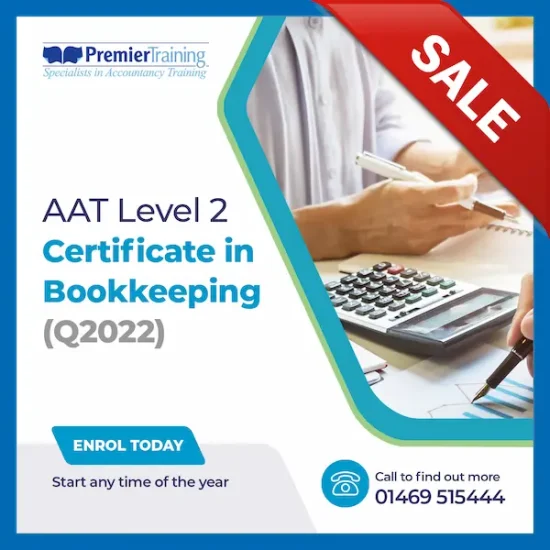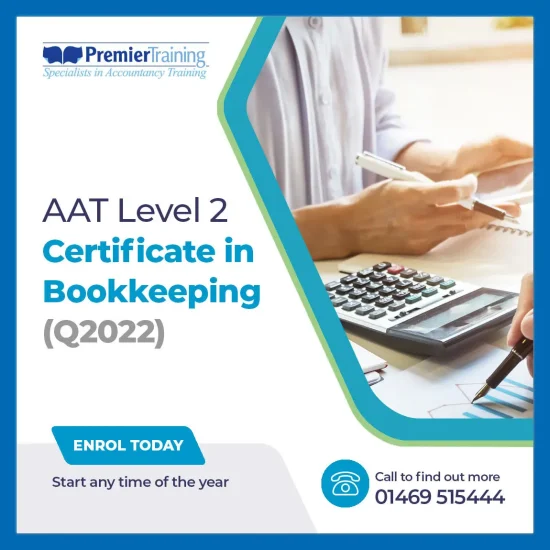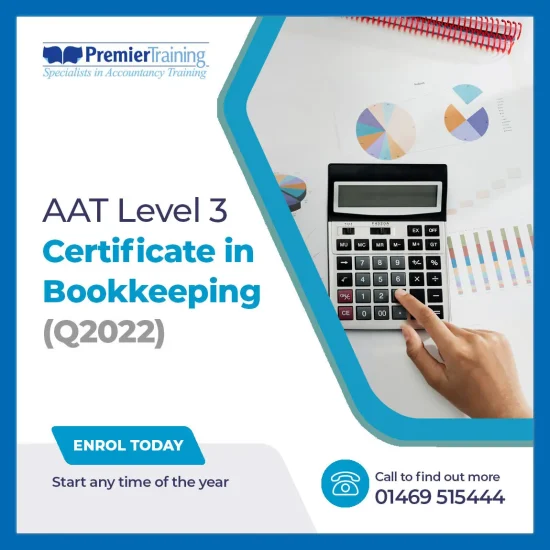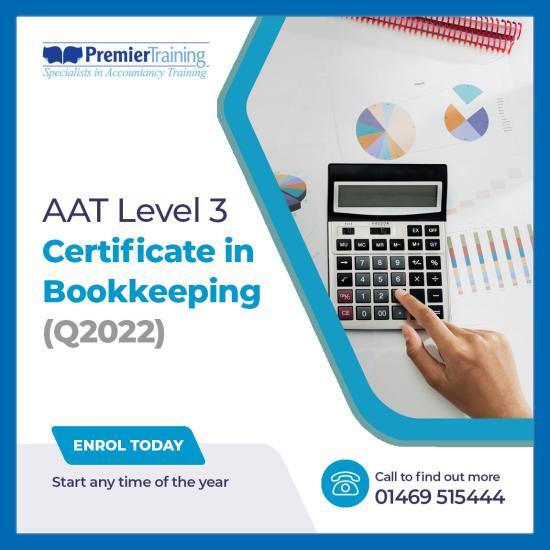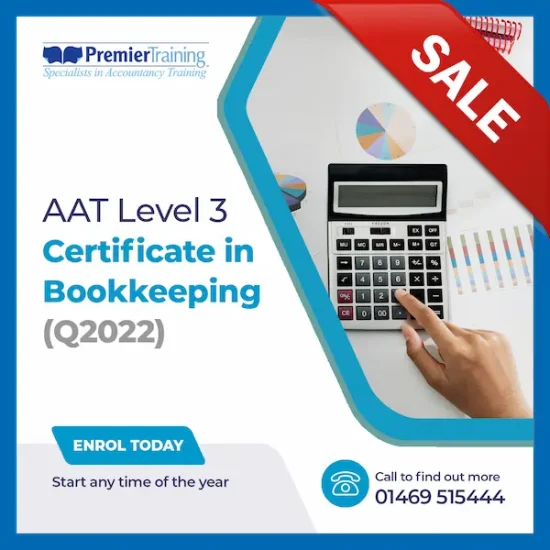A Guide to the Optional Units at AAT Level 4
At Level 4 of the AAT course, there is a requirement to complete three mandatory units, Applied Management Accounts (AMAC), Drafting and Interpreting Financial Statements (DAIF), and Internal Accounting Systems and Controls (INAC). You must complete these in order to pass the course.
In addition, there is the requirement to complete two optional units. Students must choose two optional units out of a choice of five. Choosing the right option for you means you will need to know the content of each unit and how this will help you in your future career.
Optional Unit: Business Tax (BNTA)
This unit is about UK tax relevant to businesses. It covers tax for sole traders, partnerships and limited companies. Students will learn how to prepare tax computations, the tax treatment of capital expenditure, and how to adjust profits for tax purposes.
The taxes covered will be income tax, national insurance, and corporation tax.
Tax advice is an important part of many accountancy roles, and provides opportunities to give businesses tax advice and planning. Completing tax returns can be a lucrative income for many tax advisers and accountants.
The assessment is mostly calculative with only minimal written tasks
Optional Unit: Personal Tax (PNTA)
This unit is about the three most common taxes that affect taxpayers in the UK; income tax, capital gains tax and inheritance tax. Within income tax, the unit covers employment income, income from investments and income from property.
Capital Gains Tax is a tax on selling personal assets and Inheritance Tax is a tax on the transfer of wealth (most commonly associated with the transfer of assets when someone dies). The fundamental principles of these two taxes are covered.
The unit equips the student with the knowledge to advise clients on their employment income as well as tax advice on savings, selling personal assets and renting property to tenants. The successful student will also be able to give advice on selling personal assets (particularly selling a property that is not the taxpayer’s main home) and the sale of shares. Advice on how money is transferred on death is also a feature of this unit.
This unit is a good complementary unit to the BNTA unit, giving the learner an overall understanding of the main taxes levied on businesses and the individual.
The assessment for this unit is predominantly calculative tasks with only minimal written tasks.
Optional Unit: Cash and Financial Management (CSFT)
This unit is about the importance of managing cash within a business. It ensures the learner can make an informed decision about financing and investments.
Students will learn how to prepare cash forecasts/budgets and how to deal with shortfalls and surpluses. They will learn about the different methods of financing and how to avoid the risk of financial failure. They will also look at the different types of investment, both short term and long term.
This unit is mainly for those intending to work in the finance department of larger businesses.
The assessment for this unit is a mixture of calculative tasks and written tasks, roughly in equal measure.
Optional Unit: Credit and Debt Management (CRDM)
This unit is about credit control systems. It covers the techniques that can be used to assess credit risks and the systems that are used to collect any overdue debts.
Students will learn how to use performance measures relating to liquidity, profitability and gearing to determine creditworthiness. They will also cover liquidity management, bankruptcies and insolvencies. Invoice discounting, factoring and credit insurance are also covered.
This unit is best for those who intend to work in the credit management department of larger businesses.
The assessment for this unit is predominantly written tasks with minimal calculative tasks.
Optional Unit: Audit and Assurance (AUDT)
This unit covers the legal and professional rules of audit and assurance services. It covers the planning and risk assessment of the audit as well as the final audit report.
The content will look at the techniques used in sampling, and assurance.
This is the only unit where completion does not mean that the student can undertake paid work on their own. An AAT qualified member cannot undertake an audit without supervision (unless they have further qualifications).
This unit is only useful to those who are (or intend to be) part of an audit team, or those who intend to undertake further qualifications in order to lead an audit. As a result, this is the least popular of the optional units.
The assessment for this unit is almost entirely written tasks.
This guide is given as a general view of each of the optional units at Level 4. Choosing the right unit can affect your future career, so please ensure you choose the one most appropriate to what you want to do in the future.
If you want further advice and guidance, please contact your tutor.

